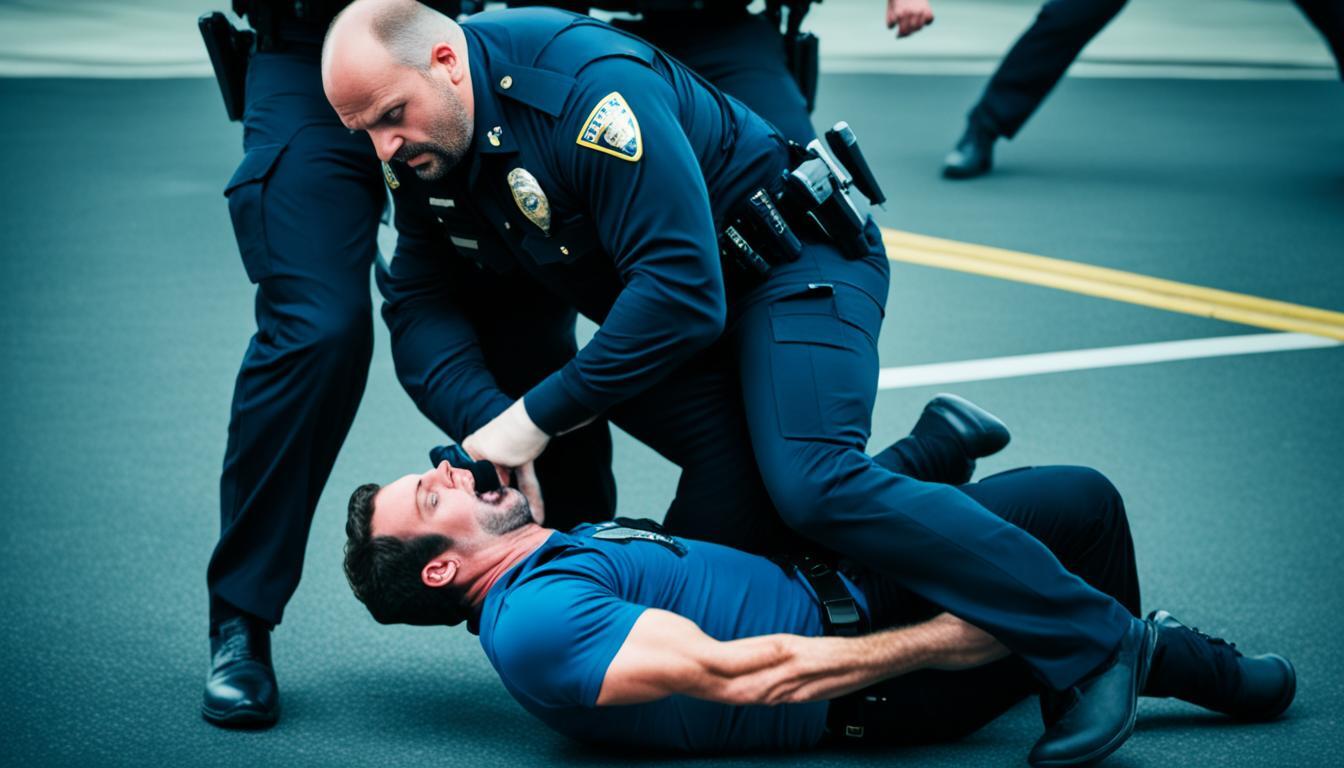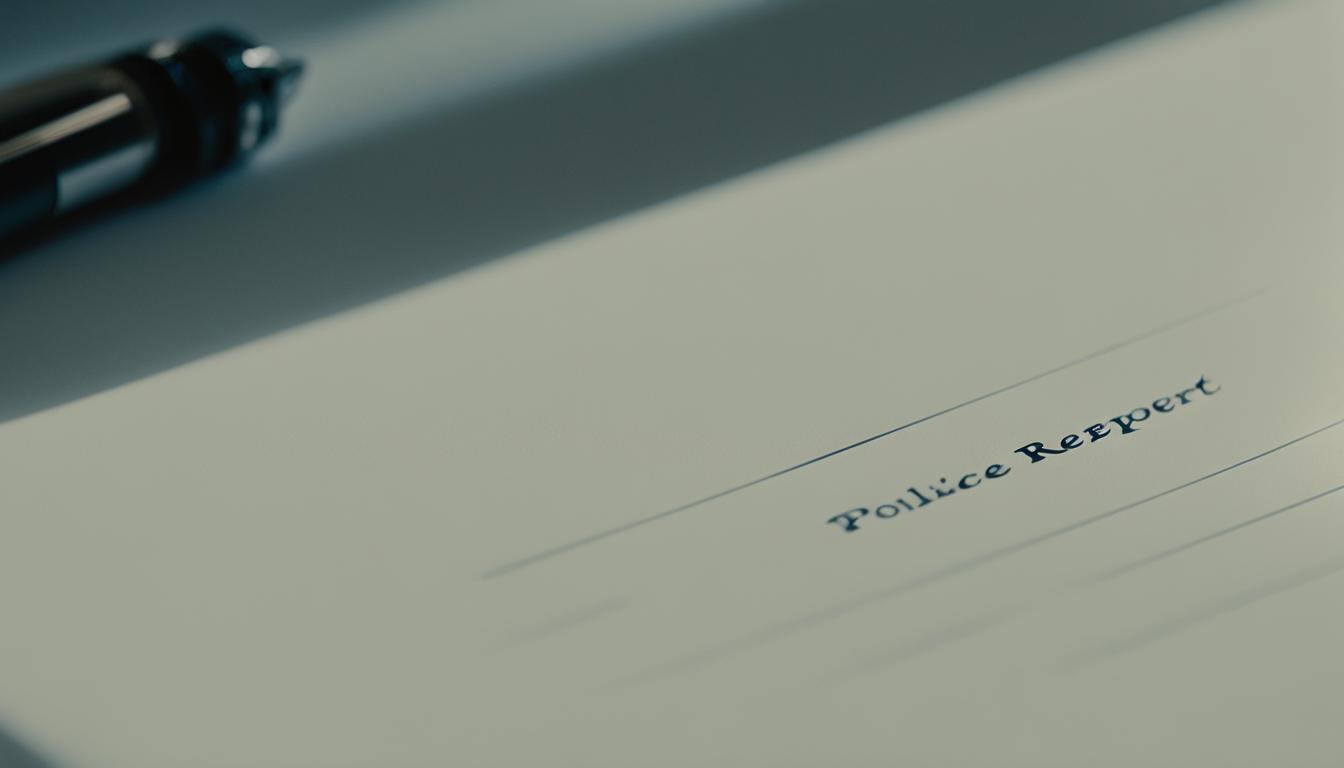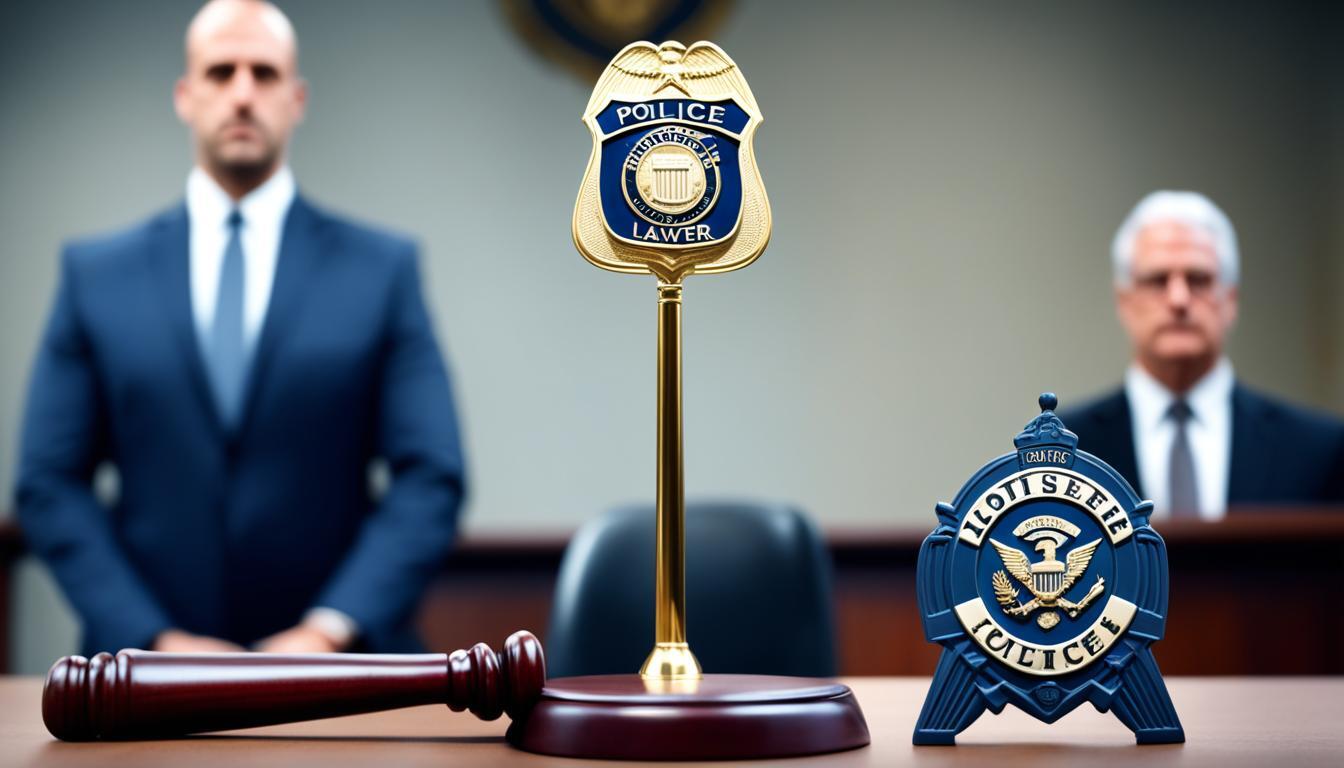Guide on How to Sue the Police Effectively
Did you know that police misconduct has been on the rise in Canada? According to recent reports, instances of civil rights violations and abuse of power by law enforcement have increased exponentially in the past decade. This alarming trend highlights the urgent need for individuals to understand their rights and seek justice for police misconduct. If you have experienced any form of mistreatment or civil rights violation by the police, it is crucial to know how to sue the police effectively.
Key Takeaways:
- Instances of police misconduct have been increasing in Canada.
- Understanding your legal rights is essential when faced with police misconduct.
- Knowing how to file a police misconduct lawsuit can help you seek justice.
- Small claims court is an option for seeking legal recourse against the police.
- It is important to be aware of the police oversight system in Ontario.
Understanding Police Misconduct and Your Rights
Police misconduct is a serious issue that can have detrimental effects on individuals and communities. It encompasses various actions by law enforcement officers that violate the rights of individuals and goes against the principles of justice. Recognizing and understanding police misconduct is crucial for individuals to protect their legal rights and seek justice.
Police misconduct can take many forms, including but not limited to:
- Wrongful arrest or false imprisonment
- Unlawful searches and seizures
- Excessive use of force
- Racial profiling
- Sexual harassment or assault
When faced with police misconduct, individuals have legal rights that protect them from such abuses. These rights are essential for maintaining a fair and just society, ensuring accountability within law enforcement agencies, and safeguarding civil liberties.
Understanding your legal rights in cases of police misconduct is crucial. It allows you to take appropriate action, seek justice, and hold the responsible parties accountable. Some key legal rights include:
- The right to be free from unreasonable searches and seizures
- The right to due process and a fair trial
- The right to remain silent and not incriminate yourself
- The right to be free from cruel and unusual punishment
- The right to equal protection under the law
It is important to note that while law enforcement officers have the authority to enforce laws and maintain order, they must do so within the confines of the law and without violating individuals’ rights. When police misconduct occurs, it is crucial to take action to ensure accountability and prevent further violations.
Police accountability measures play a significant role in addressing police misconduct and holding law enforcement officers responsible for their actions. These measures include:
- Internal investigations by police departments
- External oversight bodies
- Judicial review and legal challenges
- Disciplinary actions against officers involved
By understanding police misconduct, knowing your legal rights, and advocating for police accountability measures, you can contribute to creating a fair and just society where law enforcement agencies are held to an appropriate standard of conduct.

Filing a Police Misconduct Lawsuit
If you have been a victim of police misconduct and seek justice, filing a police misconduct lawsuit can be a viable option. It allows you to hold law enforcement accountable for their actions and seek compensation for any physical, emotional, or financial harm you have suffered.
To ensure a successful lawsuit, it is important to follow the proper steps. Here is a step-by-step guide on how to file a police misconduct lawsuit:
- Gather all relevant evidence: Before filing a lawsuit, it is crucial to gather evidence that supports your claims. This can include witness statements, photographs or videos of the incident, medical records, and any other documentation that proves police misconduct.
- Consult with an attorney: It is highly recommended to seek the guidance of an experienced attorney who specializes in police misconduct cases. They will assess the strength of your case, provide legal advice, and guide you through the legal process.
- File a complaint: Before filing a lawsuit, you may need to file a complaint with the appropriate authority. This can include the police department’s internal affairs division or an external oversight body, depending on your jurisdiction. Make sure to follow the specific procedures outlined by the relevant authority.
- Statute of limitations: Be aware of the statute of limitations for filing a lawsuit. This refers to the time limit within which you can file a claim. It varies between jurisdictions, so consult with your attorney to ensure you meet the deadline.
- Draft and file the complaint: With the guidance of your attorney, draft a complaint that outlines the details of the incident and the damages you have suffered. Your attorney will file the complaint on your behalf in the appropriate court.
- Respond to the defendant’s answer: The defendant, in this case, the law enforcement agency or officer, will file an answer to your complaint. Your attorney will guide you in responding appropriately according to the legal requirements.
- Discovery: During the discovery phase, both parties exchange relevant information and evidence. This can include depositions, interrogatories, and requests for documents. Your attorney will handle the discovery process and protect your rights throughout.
- Negotiation and settlement: In some cases, the defendant may propose a settlement before the trial begins. Your attorney will negotiate on your behalf and advise you on whether accepting the settlement is in your best interest.
- Trial: If a settlement cannot be reached, your case may proceed to trial. Your attorney will represent you in court, present your case, and argue for your rights and compensation.
- Judgment and appeal: The court will issue a judgment based on the evidence and arguments presented. If you are not satisfied with the outcome, your attorney can advise you on whether to file an appeal.
Filing a police misconduct lawsuit can be a complex legal process. It is essential to have the support and guidance of a knowledgeable attorney who can navigate the intricacies of the law and ensure your rights are protected.

Seeking Legal Recourse through Small Claims Court
If you are looking to hold the police accountable for misconduct, one avenue you may consider is filing a claim in small claims court. This can be a more accessible and cost-effective option for seeking legal recourse.
When suing the police in small claims court, it is important to follow the proper procedures to increase your chances of success. Here are some steps to guide you through the process:
- Preserve and gather evidence: Collect any evidence that supports your claim, such as photos, videos, witness statements, or medical records. This evidence will be crucial in establishing your case.
- Give proper notice: Before filing a claim, it may be necessary to give notice to the police department or government entity involved. The specific notice requirements may vary depending on your jurisdiction, so it is important to consult local legal resources or seek legal advice.
- Fill out the necessary forms: Obtain the required forms for filing a claim in small claims court. These forms can usually be found on the court’s website or obtained from the court clerk. Fill them out accurately and provide all necessary information.
- File the claim: Once you have filled out the forms, submit them to the small claims court along with any required fees. Keep copies of all documents for your records.
- Attend the court hearing: After filing the claim, you will receive a notice of the court hearing date. Make sure to attend the hearing and present your case effectively. It may be beneficial to consult with a lawyer or legal professional to prepare for the hearing.
Suing the police in small claims court can be a complex process, and it is important to familiarize yourself with the specific rules and regulations in your jurisdiction. Seeking legal advice from a qualified lawyer can provide valuable guidance and increase your chances of success.
Overview of Police Oversight in Ontario
When it comes to ensuring accountability and transparency in policing, Ontario has established a robust system of police oversight. The Office of the Independent Police Review Director (OIPRD) plays a vital role in regulating and investigating police misconduct, while the Policing Standards Departments set and enforce policing standards across the province.
The Office of the Independent Police Review Director serves as an impartial civilian oversight agency. Its primary mandate is to receive and address complaints about police conduct, including allegations of misconduct, discrimination, and abuse of authority. This independent office is responsible for conducting thorough investigations and making recommendations for corrective action.
In addition to investigating individual complaints, the OIPRD also conducts broader public interest investigations into systemic issues within policing. Through these investigations, the OIPRD aims to identify and address underlying problems that may contribute to police misconduct.
The Policing Standards Departments, on the other hand, are responsible for setting and enforcing professional policing standards in Ontario. These standards cover various aspects of police operations, including the use of force, arrest and detention procedures, and community engagement. By ensuring that police agencies adhere to these standards, the Policing Standards Departments contribute to maintaining integrity and accountability in the policing profession.
Overall, the police oversight system in Ontario strives to hold law enforcement accountable for their actions and promote trust and confidence between the police and the community. By establishing clear standards and providing independent oversight, it aims to address instances of misconduct and ensure that the rights of individuals are protected.
| Key Aspects of Police Oversight | The Office of the Independent Police Review Director (OIPRD) | Policing Standards Departments |
|---|---|---|
| Primary Role | Receiving and addressing complaints about police conduct | Setting and enforcing professional policing standards |
| Investigations | Individual complaints and systemic issues | N/A |
| Accountability | Investigation findings and recommendations for corrective action | Ensuring adherence to policing standards |
| Protecting Rights | Addressing instances of misconduct | Safeguarding the rights of individuals |
Making a Complaint and Accessing Legal Resources
If you have experienced misconduct by the police, it is important to know how to make a complaint and access the legal resources available to you. There are several avenues you can take to address your concerns and seek justice.
Firstly, you can make a complaint by directly contacting the police station where the incident occurred. It is advisable to document the time, date, and details of the incident to provide accurate information. If you are uncomfortable making the complaint in person, you can also do so in writing or by phone.
Alternatively, you can make a formal complaint through the Office of the Independent Police Review Director (OIPRD). They are responsible for receiving and investigating complaints about police conduct in Ontario. You can submit your complaint online, by mail, or in person at their office.
In addition to making a complaint, it is essential to access legal resources to navigate the complaints process effectively. There are legal aid clinics available that can provide guidance and support. They can help you understand your rights, assist with filling out complaint forms, and offer advice on the best course of action.
- The Role of Police in Community Safety & Unity - October 6, 2025
- Quebec Police Officer Salary Insights 2023 - July 13, 2025
- Canada Arrest Protocol: What Police Say Upon Arrest - June 12, 2025




















Post Comment